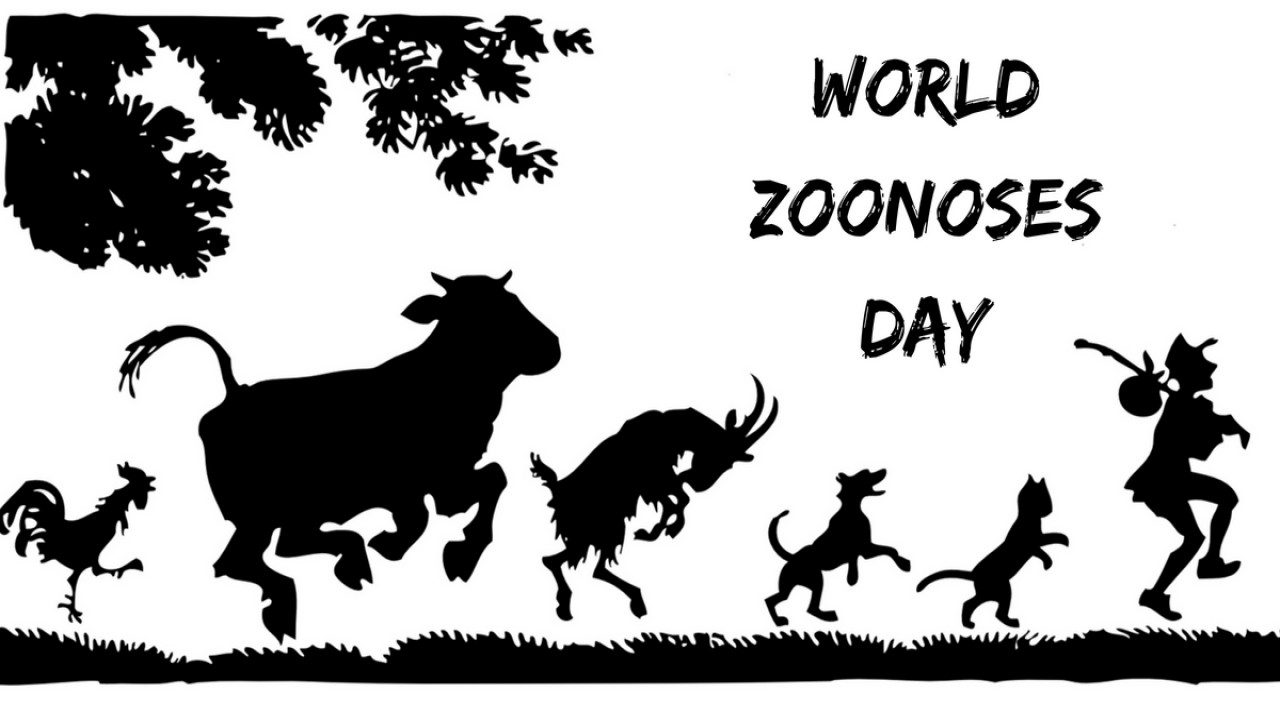Millions of people across the globe every year fall prey to the diseases like swine flu, bird flu, cat scratch fever, rabies, leptospirosis, Lyme disease, cowpox, Ebola, SARS, hantavirus, anthrax, monkeypox, etc. these diseases are known as zoonotic diseases.
This type of diseases is spread to people through contact with animals. When the climate is warmer, it tends to create a change in the behavior of vectors (animals who harbor dangerous pathogens like virus and bacteria).
When the climate sets in, one is more prone to the risk of zoonotic diseases than ever. On July 6, World Zoonoses Day 2019 is marked. The day has been observed since 1885 to mark the day Louis Pasteur administered his first rabies vaccine.
On this day, here’s how we can prevent these diseases
How Zoonotic Diseases spread?
Zoonotic diseases are caused when animals carrying dangerous pathogens come in contact with humans. Some animals are hosts of these pathogens or are infected by them. People who interact with animals on a daily basis and many also keep pets or others.
In some cases, the infected animal can look healthy but they may be carrying disease-causing bacteria or virus. These animals can pass on the germs to people through the following ways
- Direct Contact- Coming in direct contact with the animals or their mucus, urine feces or other bodily fluids. The germs are even spread when the animals bite or scratch the person.
- Indirect contact- the infection or germs can even be spread to people if they come in contact with the places that the animals live in. Also by cleaning pens, sties, coops or kennels of the animals may expose people to the germs.
- Vectors- in some cases the germs can also be spread through the vectors, mosquitoes or ticks that carry the pathogen can infect humans.
- Food- it can also be a reason for the spread of germs, eating undercooked meat, drinking unpasteurized milk, consuming unwashed fruits that may be bat-eaten or consuming raw eggs are some of the ways in which the pathogens enter the human body.
How to prevent such diseases
If you deal with animals on a daily basis, there are some basic rules should be followed to prevent zoonotic infections. For the people with pets and those who keep animals as a source of livelihood.
Here are some rules to adhere to:
- Every time you come in contact with animals, wash hands frequently. Even if you are around them and you have not touched them, still, wash your hands.
- In case soap isn’t available then keep sanitizers with you to use them from time to time.
- To stay away from vectors, use mosquito nets and other insect repellents.
- Wash the animal equipment in antiseptic and use gloves when you handle them.
- Wash the hands after handling their cages, toys, utensils or leashes.
- Keep your pets healthy, vaccinate them or take them to the vet and de-worm them.

















